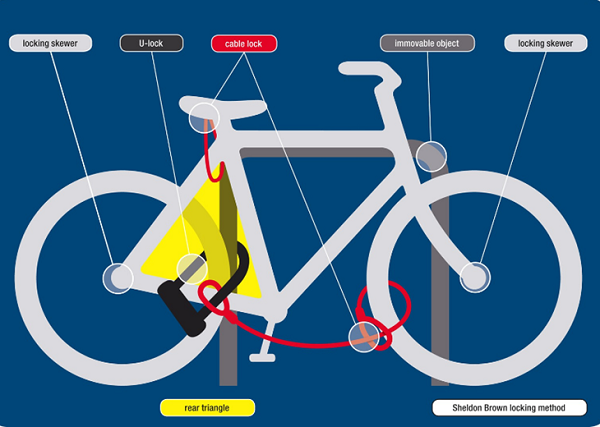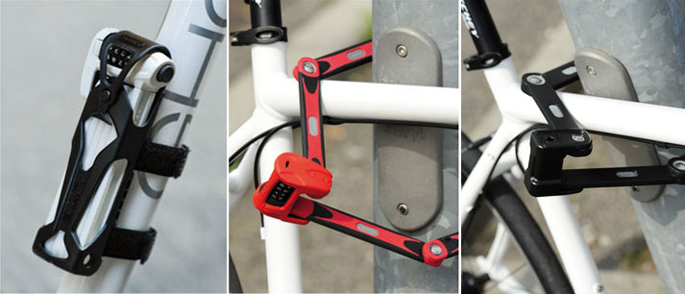Locking Your Bicycle

How to Lock Your Bike
Some foolproof advice on reducing the odds of theft—or at least increasing your chances of getting your stolen bike back
HOW TO LOCK IT
1. Find something sturdy to lock the bike to. Make sure thieves can’t simply lift the bike over it.
2. Watch out for scaffolding and “sucker poles”—shake them first to ensure they’re solidly in the ground. As Kryptonite product manager Don Warren puts it, “The bike is only as secure as what you’re locking it to.
3. Wheel theft is on the rise. If you can’t lock one of yours, take it with you. But don’t park the bike that way long—thieves will start to strip it.
4. Don’t use a U-lock around your bike’s top tube, says Michael McGettigan, owner of Trophy Bikes in Philadelphia. A thief could use the frame as a lever to pop it open. Use the lock to secure a wheel to your down tube.
5. Locks are about buying time. A burly chain at least 12mm thick will delay thieves the longest.
6. Remove the front wheel, then lock both wheels together with the frame, bike mechanic and lock expert Hal Ruzal suggests.
DO THIS NOW
Mark your bike
“A thief’s big concern is, ‘Can I sell this bike in 30 minutes?’” McGettigan says. “Thieves don’t want one that’s easily identifiable.” Write your initials at 12 o’clock and 6 o’clock on each tire with a Sharpie. Or pen your name on the top tube and cover it with layers of clear packing tape. A thief can remove it with some effort, but it probably won’t be worth the hassle.
Take a mug shot
Write your bike’s serial number in marker on paper and have someone photograph you displaying it next to your bike. Also take shots of identifying details and keep them stored in your phone. There’s no theft without proof of ownership. Have yours ready.
Buy new locks
That Craigslist find might be a bargain, but it could be compromised or outdated.
WHERE TO LOCK IT
Know your neighborhood
Talk to a local bike shop. The staff should be well versed on the amount of theft occurring in the neighborhood and may have some targeted advice about where (or where not) to lock up. Or check with a local advocacy organization.

